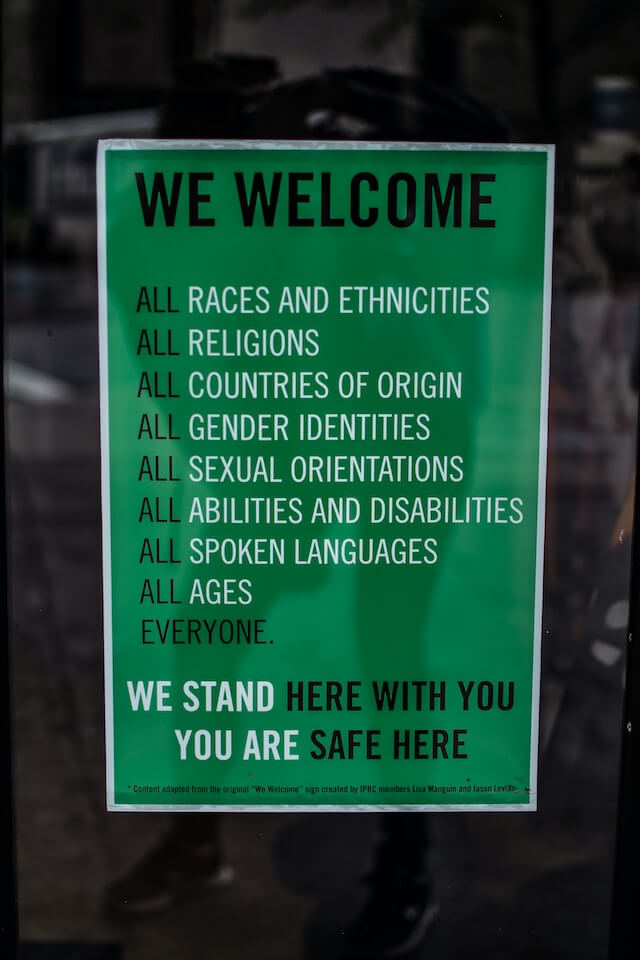Diversity and inclusion are essential for companies to thrive in today’s business landscape. Benchkart, as a company, recognizes this fact and is committed to D&I as a key culture and a strategy pillar. In this article, we will explore why diversity and inclusion are important for businesses, how companies benefit when they have diverse teams, and provide real-life examples and data points to make the case.
Diversity is an image
Diversity and inclusion refer to the differences among individuals in a workplace. This includes differences in gender, race, ethnicity, age, sexual orientation, religion, physical ability, and other personal characteristics. You can think of diversity as an image or a snapshot of your company. If you were able to take a picture of your entire company or organization, how would it look? Would most people look similar or would different genders, races, ages etc be represented in that image?
Inclusion is a video
Inclusion refers to creating an environment where everyone feels welcome, respected, and valued for their unique perspectives and contributions. Companies that prioritize diversity and inclusion create an environment where everyone feels comfortable, included, and able to contribute to the company’s success. This, therefore, is more of a movie (or video) than a picture! This shows ‘how’ the diverse teams are empowered to collaborate. Think of a video of work happening in your organization. Is everyone contributing? Is an introvert or someone from another country or gender or sexual orientation being valued enough and being provided an environment where they can express themselves? Are decisions being taken only a certain way or are differing perspectives and learning styles incorporated in decision making?
D&I: Ethics and Business

Diversity and inclusion are not just ethical issues; they have significant business benefits.
Financial Performance: Companies that prioritize diversity and inclusion have been shown to perform better than their less diverse peers. A study by McKinsey & Company found that companies with diverse teams are 35% more likely to have higher financial returns than their less diverse peers. Companies with diverse teams are also better able to attract and retain top talent, leading to a more engaged and productive workforce.
Innovation: Diversity and inclusion are also essential for innovation. When teams are made up of people from different backgrounds and experiences, they bring a range of perspectives to problem-solving. This can lead to more creative and innovative solutions. A study by Harvard Business Review found that teams with diverse perspectives are more likely to develop innovative solutions to complex problems than homogeneous teams. Homogenous teams sometimes work more like ‘echo chambers’ where similar views assume larger-than-life importance just due to repetition & consensus.
Customer Understanding: Companies that prioritize diversity and inclusion also have better customer understanding and satisfaction. Diverse teams are better equipped to understand the needs and preferences of a diverse customer base. For example, Procter & Gamble’s Women’s Leadership Team helped the company launch the “My Black is Beautiful” campaign, which aimed to celebrate and empower Black women. The campaign’s success was due in large part to the diverse team’s ability to understand the needs and preferences of its target audience.
Decision Making: Another benefit of diversity and inclusion is improved decision-making. When teams are made up of people with different backgrounds and experiences, they are better equipped to identify biases and blind spots in decision-making. This leads to better decisions overall. A study by Deloitte found that diverse teams make better decisions 87% of the time.
Employee Engagement: Companies that prioritize diversity and inclusion also have better employee engagement and satisfaction. When employees feel included and valued, they are more likely to be engaged in their work and committed to the company’s success. This leads to a more productive and effective workforce. A study by Glassdoor found that companies with diverse teams have higher employee satisfaction ratings than their less diverse peers.
Benchkart is committed to D&I

Benchkart is committed to diversity and inclusion as a key culture pillar. The company recognizes that having a diverse team is essential for success in today’s business landscape. Benchkart’s commitment to diversity and inclusion is reflected in its hiring practices, training programs, and overall company culture. The company actively recruits candidates from diverse backgrounds and provides ongoing training and development opportunities to ensure that all employees feel included and valued.
We also work with agencies with diverse backgrounds including regions, leadership structures, stages of business, technologies and sizes. This helps us get unique perspectives on our clients’ problems and digital journeys. It opens our eyes everyday to what is possible and diverse ways to optimize the outcomes for a client.
SUMMARY
In conclusion, diversity and inclusion are essential for companies to thrive in today’s business landscape. Companies that prioritize diversity and inclusion have been shown to perform better than their less diverse peers. Diverse teams are better able to attract and retain top talent, leading to a more engaged and productive workforce. They are also better equipped to understand the needs and preferences of a diverse customer base and make better decisions overall. Benchkart’s commitment to diversity and inclusion reflects its understanding of these benefits and its commitment to creating a workplace where everyone feels welcome, respected, and valued for their unique perspectives and contributions.
